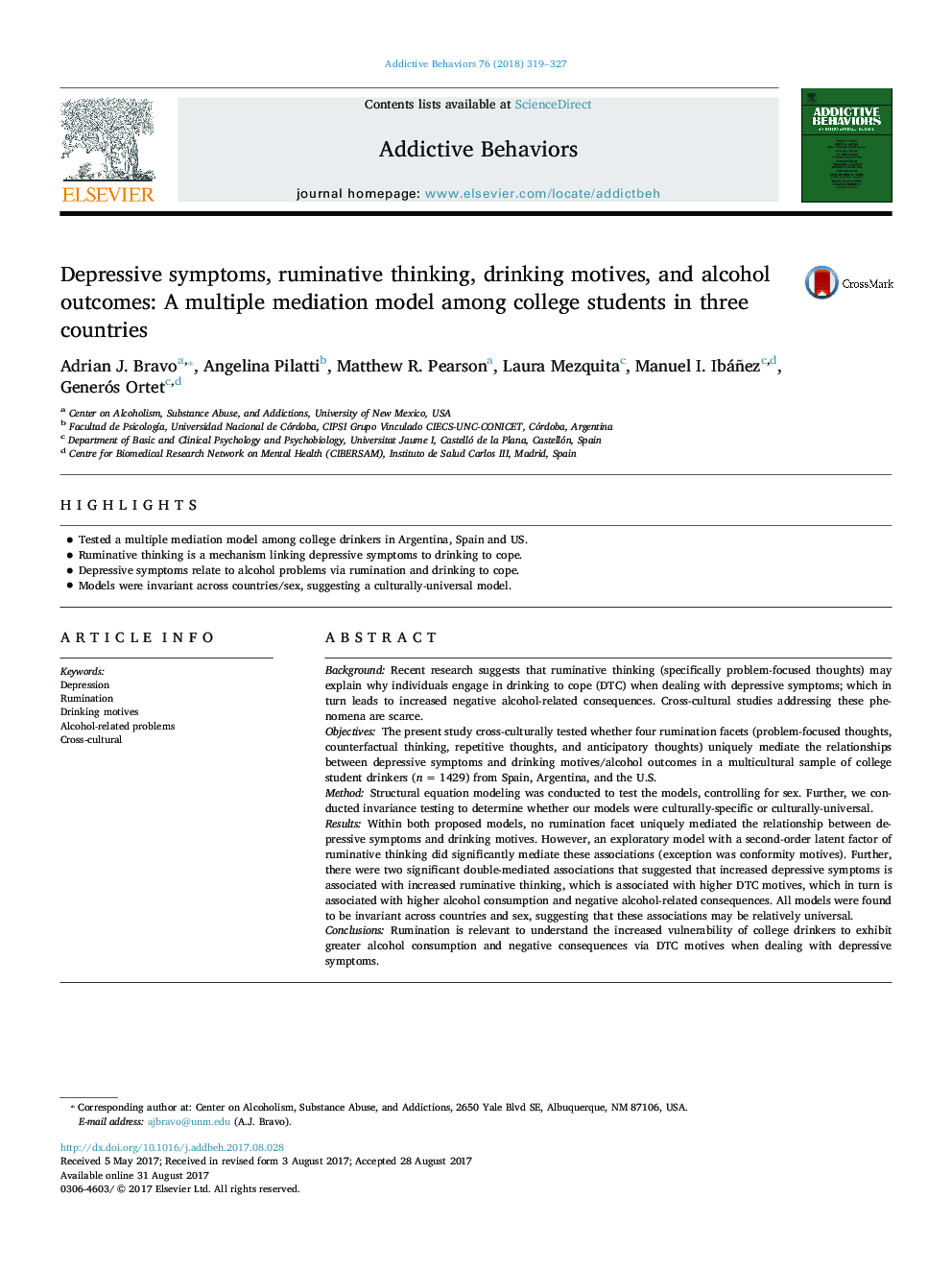| کد مقاله | کد نشریه | سال انتشار | مقاله انگلیسی | نسخه تمام متن |
|---|---|---|---|---|
| 5037641 | 1472495 | 2018 | 9 صفحه PDF | دانلود رایگان |
- Tested a multiple mediation model among college drinkers in Argentina, Spain and US.
- Ruminative thinking is a mechanism linking depressive symptoms to drinking to cope.
- Depressive symptoms relate to alcohol problems via rumination and drinking to cope.
- Models were invariant across countries/sex, suggesting a culturally-universal model.
BackgroundRecent research suggests that ruminative thinking (specifically problem-focused thoughts) may explain why individuals engage in drinking to cope (DTC) when dealing with depressive symptoms; which in turn leads to increased negative alcohol-related consequences. Cross-cultural studies addressing these phenomena are scarce.ObjectivesThe present study cross-culturally tested whether four rumination facets (problem-focused thoughts, counterfactual thinking, repetitive thoughts, and anticipatory thoughts) uniquely mediate the relationships between depressive symptoms and drinking motives/alcohol outcomes in a multicultural sample of college student drinkers (n = 1429) from Spain, Argentina, and the U.S.MethodStructural equation modeling was conducted to test the models, controlling for sex. Further, we conducted invariance testing to determine whether our models were culturally-specific or culturally-universal.ResultsWithin both proposed models, no rumination facet uniquely mediated the relationship between depressive symptoms and drinking motives. However, an exploratory model with a second-order latent factor of ruminative thinking did significantly mediate these associations (exception was conformity motives). Further, there were two significant double-mediated associations that suggested that increased depressive symptoms is associated with increased ruminative thinking, which is associated with higher DTC motives, which in turn is associated with higher alcohol consumption and negative alcohol-related consequences. All models were found to be invariant across countries and sex, suggesting that these associations may be relatively universal.ConclusionsRumination is relevant to understand the increased vulnerability of college drinkers to exhibit greater alcohol consumption and negative consequences via DTC motives when dealing with depressive symptoms.
Journal: Addictive Behaviors - Volume 76, January 2018, Pages 319-327
